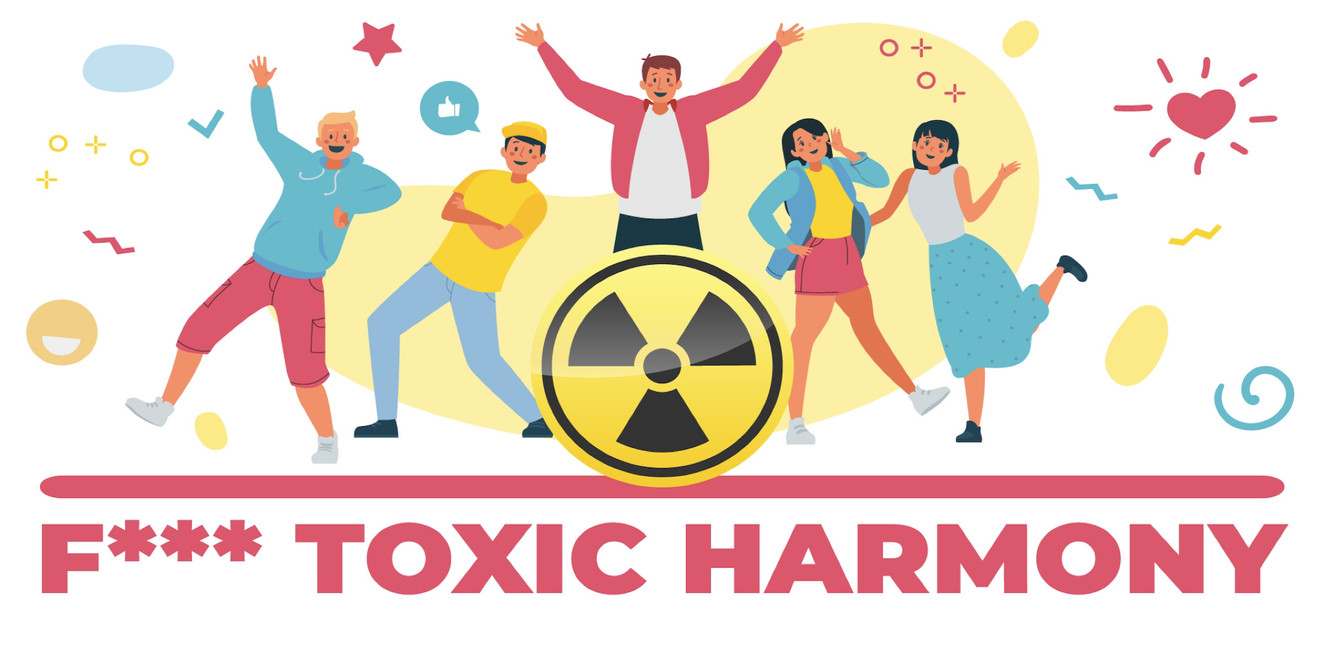When harmony becomes unhealthy, we need a way how to truly connect with each other.
Now that the working world seems to become more and more confusing every day, we are supposed to lead ourselves! Because, the people, who are ready to "lead" others, become less and less, those who can do it anyway. This is not a problem as long as everything runs harmoniously. But if we get on each other's nerves, the only solution is to pretend that everything is fine.
To get out of this predicament, companies are looking for super-competent managers who can do more than just set goals. Leaders who can coach and moderate in a way that the strife can be addressed and resolved at first place. But such leaders are hard to find. And even if the super leader is found, difficulties are still to be expected. In this case, although the techniques of conflict moderation are mastered, and although this superpower is itself part of the system, she/he assumes a neutral role, moderates empathically, applies questioning techniques correctly, and remains sovereign. Nevertheless, such competence inevitably leads to a further authority divide: The arguing employees and the sovereign manager who moderates the cart out of the mud. How can then equal footing be maintained?
So, what can be done so, that the many who work in an area of interpersonal tension do not have to remain in toxic harmony or keep their distance?
Toxic harmony as an exit strategy?
In the past years, each of us has had very concrete experiences with divisions. The others and us. The "right position" became more important than the way we deal with different opinions, people moved away from each other. We trained either to be very close and of one opinion or to keep a cold distance. This left its mark on working groups. We have forgotten that we can like each other and at the same time get on each other's nerves. Under this premise, however, it is not possible to work together in a way that is good for us. Thus, we can only be absolutely harmonious or spidery.
Learning the ability of ambivalence
We urgently and very quickly need to learn (again) that there can and must be room for both in our hearts and in a strong team. We get on each other's nerves WHILE we appreciate each other. This basic attitude is important and possible to train. One might even go so far as to say, that someone does not have the right to bring up a critical interpersonal issue until she/he can maintain an appreciative connection with the person in question.
How can you train this?
First and foremost, you need to recognize that this very "ambivalence skill" is necessary in order to move forward with each other. It must be clear to everyone that it is not only okay, but NEEDED, that you admit to each other when something bothers you, without immediately falling into a feeling of drama because of it. You don't have to hate or condemn the person who is annoying you.
This "awareness" of a conscious perception that someone is getting on your nerves, is already the first step. It is a balancing act not to suppress the unpleasant feeling, but also not to exaggerate it.
Once you've achieved this, you'll be able to do a little trick: in this moment of being annoyed, you'll remember what you appreciate about the person. Be careful not to drop the thread of being annoyed right away. Ambivalence tolerance means to perceive BOTH AT THE SAME TIME. Without tipping over into all-embracing harmony and also not into the devaluation of a person that is annoying you at the moment.
Make it part of your togetherness, your everyday working culture, that ambivalence is part of an honest and adult togetherness. If you have built up tolerance for ambivalence in your team, then this is a great basis for dealing constructively with interpersonal tensions. Without any external support!
In the next article, you'll find out how you can deal with speechlessness, because "Work life begins at the end of toxic silence”.
Mag. Reingard Winter-Hager


Join the discussion
Your email address will not be published. You have to fill out all fields.